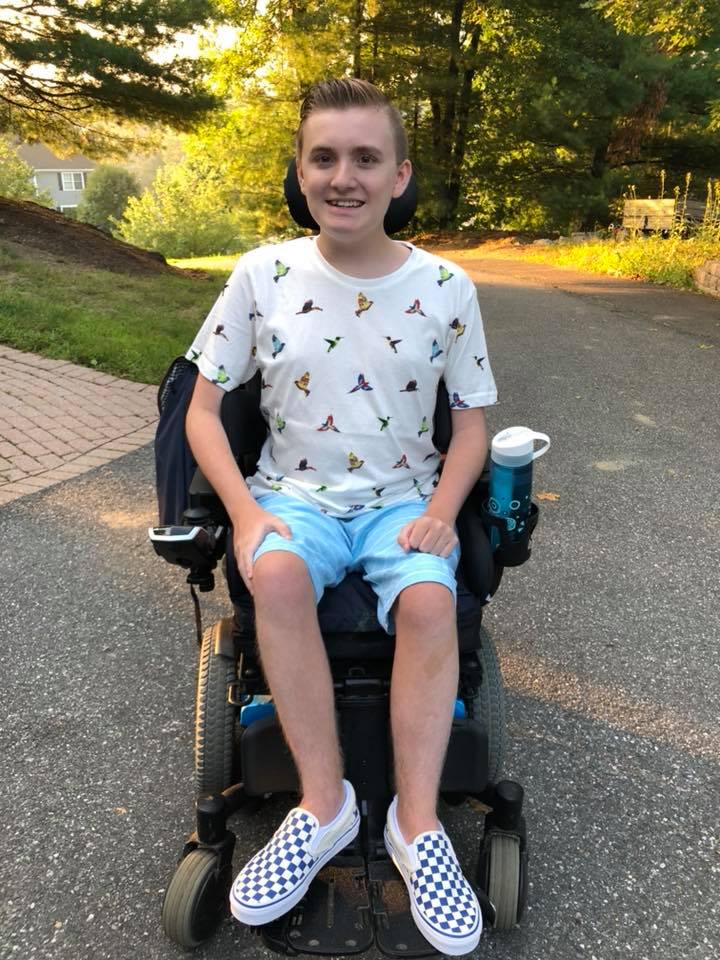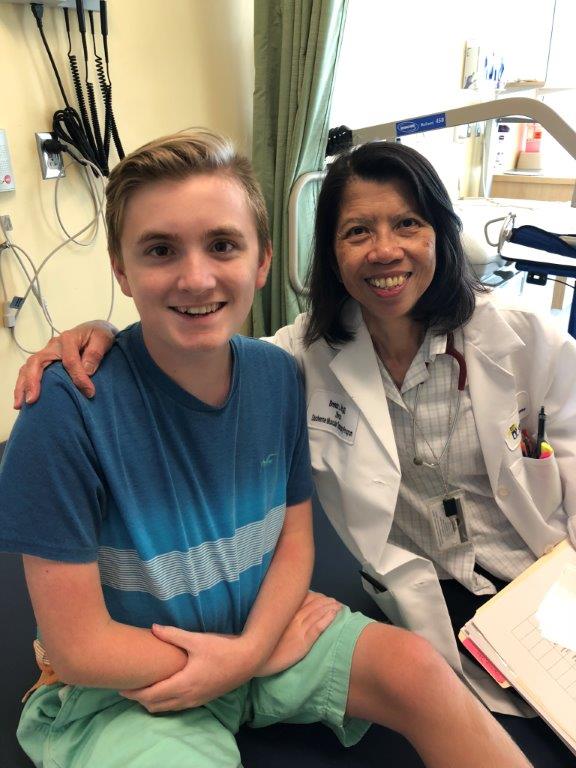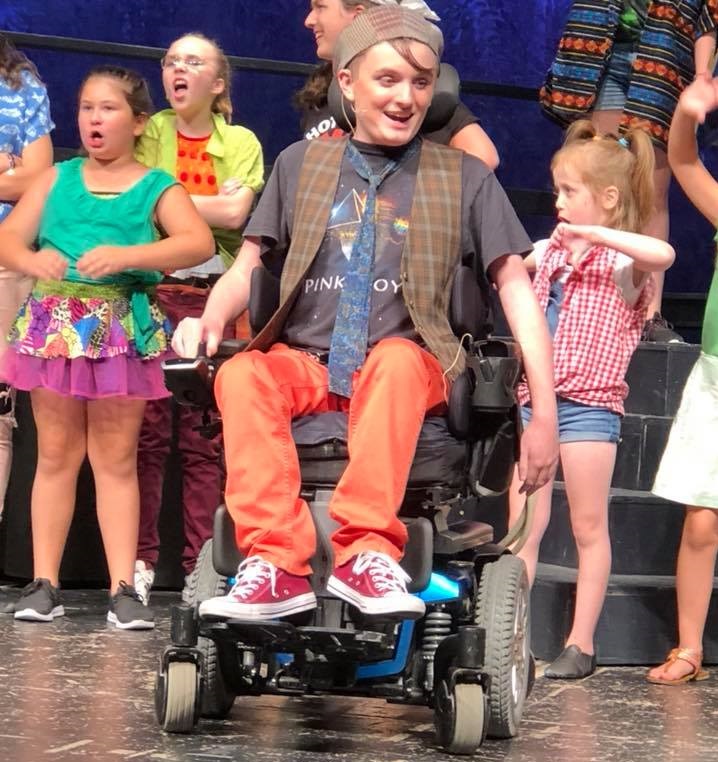Today is World Duchenne Awareness Day, which aims to raise awareness for people living with Duchenne muscular dystrophy (DMD). In this blog, Jake Marrazzo, a DMD patient and advocate, shares his experience, providing a powerful story of inspiration to anyone who has been touched by this disease.

I Just Want to Show Other Patients that Anything is Possible

My story starts on a basketball court in early elementary school where, despite my best attempts, I couldn’t seem to keep up with the other kids. I also noticed they had an easier time going up the stairs, and I really wanted to know why. After a few years of asking questions, at age 8, I was diagnosed with Duchenne muscular dystrophy, or DMD for short.
Essentially, this genetic disease means that my body can’t make a protein called dystrophin, which my muscles need to keep moving. Without it, my muscle cells have started to weaken and die off. At age 12, I started using a wheelchair because walking became too difficult.
I’m 15 now, but in the seven years that have passed since my diagnosis, I have refused to let this disease slow me down. Getting diagnosed with DMD was extremely hard (although I think it was harder for my parents than it was for me), and I was forced to come to terms with certain limitations at a far earlier age than most people.
But at the same time, I’ve learned the value of living life to its fullest in the time that we have. I feel like I’ve discovered myself as a person, and ultimately, I’ve been able to become an inspiration to others.
For example, I have always loved theater, but after my diagnosis, I avoided auditioning for roles because I didn’t think there was a place for someone with my condition on stage. Looking back, I see that was the wrong approach, and in high school, I thought “what do I have to lose?” and began attending auditions. During my first show, I was so nervous, but I adapted. Now Duchenne is not that much of a limitation for me as a performer. The process taught me the importance of never giving up and saying to yourself “I WILL do this.”

It’s that same mindset I want to give to others in my situation – people like my nephew, who was recently diagnosed with DMD as well. My mom and I have learned so much about Duchenne since my diagnosis, and when we heard about his, we knew how to help. I just want him and others to know that yes, you’ll have limitations, but that shouldn’t slow you down from doing what you love. There will be good days and bad days, but in the end, you learn to roll with the punches.
Aside from my wheelchair, I’m a normal teenager. I still goof off with my friends during theater practice. I still tell my parents that I don’t want to dust my room. My mom often says that “if you don’t have hope, what do you have?,” and she’s right.

I recently met a Pfizer scientist who is trying to find a gene therapy that could help my body make dystrophin, slowing or even halting the course of Duchenne.
When I first got diagnosed, my mom and I joined patient groups and tried to meet families with DMD trying to figure out what to do, how to cope, how to stay positive. Now, people come to us with the same questions. I tell everyone the same thing: Your journey is going to be hard, but there’s no reason to let it stop you. You’ll learn to roll with the punches. You’ll learn a lot about yourself. And you’ll learn how to live every day to the fullest.
Ready to Get Involved?
Make your voice heard to protect innovation.